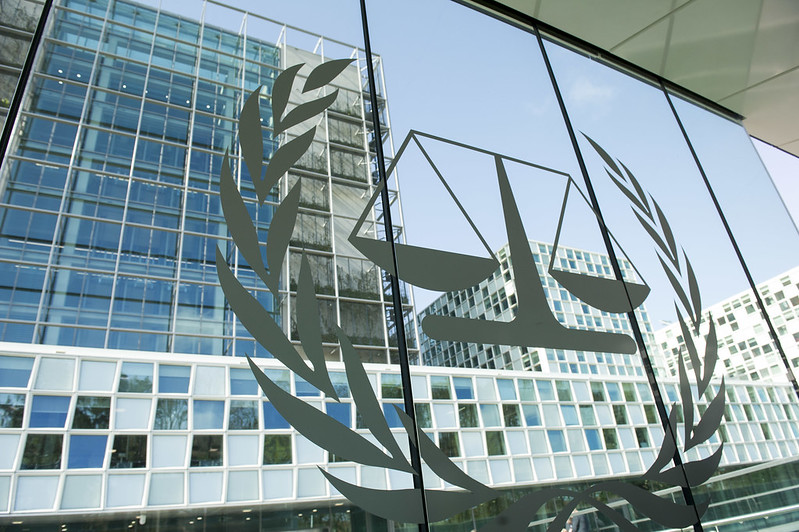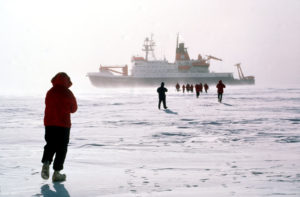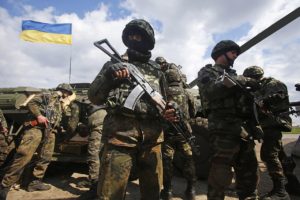As Russian forces have pulled back from Kyiv and its surrounding suburbs, chilling accounts of attacks against civilians have emerged. Photos from Bucha showed strewn bodies in the street with hands tied and gunshot wounds to the head. A recent Human Rights Watch report documented “unspeakable, deliberate cruelty and violence against Ukrainian civilians,” including rape, sexual violence, torture, execution, and murder. The U.S. government formally declared that “members of Russia’s forces have committed war crimes in Ukraine” in a press statement in late March. These accounts have fueled outrage over the atrocities being committed by Russian troops, but holding perpetrators accountable for war crimes in the International Criminal Court (ICC) is hardly simple; if not near impossible.
Wars have rules. All parties to an armed conflict are obligated to abide by international humanitarian law — also known as ‘the laws of war’ — which includes the 1949 Geneva Conventions. A central tenant of the laws of war is the requirement to distinguish between combatants and civilians. Intentionally targeting civilians or places where civilians may reside — including schools, hospitals, houses, or places of worship — constitutes a war crime.
Based on the evidence in recent reports, Russian attacks against Ukrainian civilians constitute war crimes. The deliberate killing of civilians in Bucha and the strike on a hospital in Mariupol — two of several Russian attacks on civilians — clearly violate the 1949 Geneva Conventions. A report by the Organization for Security and Cooperation in Europe (OSCE) found a “clear pattern of international humanitarian law violations by the Russian forces” and called Russia’s attack on the port city of Mariupol an “extreme example.” On paper, making the case that Russia committed war crimes seems clear cut. In practice, however, the burden of proof and the legal process make holding Russian forces accountable for these crimes a long shot.
Although deliberately targeting civilians in a conflict zone would constitute a war crime, incidentally killing civilians does not. The principle of proportionality also affects war crimes considerations. The force used by the military must be proportional so as to ensure that the civilian death toll is not excessive in relation to the anticipated military advantage. Despite the massive amounts of documentation by reporters, non-governmental organizations, and state organizations, proving disproportionality could be difficult in court.
In addition to the burden of proof, the legal process hampers the possibility of holding Russian forces accountable for war crimes. The ICC in the Hague investigates and prosecutes individual war criminals. Anyone accused of a crime under the jurisdiction of the court, which includes countries that are parties to the Rome Statute — the treaty that established the ICC — can be tried. But, successful convictions are rare, especially for crimes committed by the world’s major geopolitical powers.
The world’s major powers have consistently pushed back against the ICC’s ability to hold them, or their allies, accountable. Russia, the United States, and China are not parties to the Rome Statute, which shields them from liability.
To open an investigation into Russian war crimes, the ICC only has three pathways: 1) the UN Security Council refers the crimes to the court, (2) Russia consents to the jurisdiction of the court, or (3) Ukraine consents to the jurisdiction of the court.
Since Russia (and, for that matter, the United States and China) has a permanent seat on the UN Security Council, option 1 is highly unlikely. Option 2 is also unlikely — why would Russia voluntarily self-incriminate itself? Option 3 is feasible, however. Ukraine has consented to the ICC’s jurisdiction. In fact, a mere four days after the Russian invasion of Ukraine, the ICC prosecutor said he would open an investigation into potential war crimes.
There’s a catch, though. The ICC does not conduct trials in absentia, which means that suspects would either have to be handed over by Russia or arrested outside of Russia. That seems unlikely.
Ostensibly, this leaves us with the political and diplomatic pressure that an ICC investigation could exert on Russia. The investigation may affect the space for diplomatic negotiations and add more substance to the mounting condemnation of Russia’s invasion. The ongoing investigation could be used as an argument to further impose sanctions on Russia and isolate the country in an attempt to force an end to hostilities. Yet, for Ukrainian victims, an ICC trial is unlikely to provide accountability or justice.
© UN Photo/Rick Bajornas (19 April 2016)






Be First to Comment